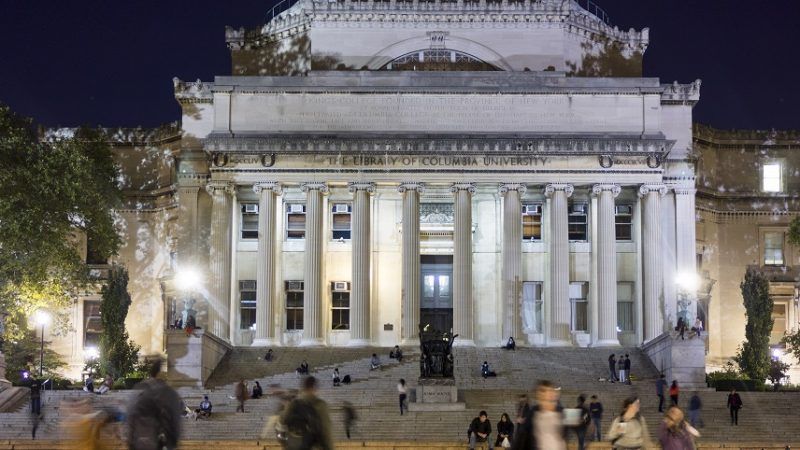Columbia Student Group Thinks Student Groups It Disagrees With Should Be Defunded
The Black Students' Organization thinks the College Republicans are peddling violent speech.

The Columbia University chapter of the College Republicans has few friends at the school. The Black Students' Organization (BSO) has no love for the right-leaning group, but rather than agreeing to disagree, the BSO has proposed the Student Governing Board strip them of their funding.
In its proposal, filed October 29, the BSO contends the College Republicans shouldn't be recognized as a legitimate organization or receive funding if they invite controversial speakers to campus. Recently, the group invited Tommy Robinson, the founder of the anti-Islam English Defence League, and Mike Cernovich, an alt-right commentator, as part of Free Speech Month.
The Student Governing Board (SGB) collects about $250,000 from students and reallocates it annually to student organizations on campus. Last year, the College Republicans received $4,640, according to the university's newspaper, the Columbia Daily Spectator.
"We do not support, in any capacity, giving a platform to beliefs that blatantly oppose our livelihood and humanity, and especially not in the name of intellectual diversity," the BSO proposal reads.
Robinson attempted to give a speech about mass immigration in Europe via Skype on October 10, but protesters carrying signs that read "hate speech = violence" and "Muslims are welcome here" helped force the event to shut down the speech early.
Cernovich spoke on October 30, due in part to a large security presence facing hundreds of student and community protesters marching in the streets. No one was injured,
The BSO complained to the Columbia College Student Council (CCSC) and encouraged other student organizations to support its mission to denounce white supremacy by defunding and derecognizing the College Republicans.
According to the Spectator, the group also asked that funds for the College Republicans be transferred to groups composed of students of color, LGBT students, and Muslim students, because they are typically targeted by Cernovich and Robinson.
"If the word 'white supremacist' can be applied to a person, maybe don't invite them to our campus," Nicole Allicock, the CCSC vice president of policy, said during the meeting.
Allicock also suggested the College Republicans submit a list of proposed speakers to the CCSC for approval before they can be invited to speak on campus, per the Spectator report.
The Council voted to send a general concern report to the Student Conduct and Community Standards committee, which investigates and resolves cases of "academic, behavioral, and gender-based misconduct."
Defunding is a particularly blunt form of censorship attempted on several campuses, including the University of California-San Diego. Wesleyan University's student newspaper, the Wesleyan Argus, nearly lost its funding after running an op-ed critical of the Black Lives Matter movement in September 2015.
Foundation for Individual Rights in Education (FIRE) intervened and argued defunding the paper would violate the principles of a free student press. Ultimately, the Wesleyan Student Assembly passed a resolution that salvaged some of the paper's funding.
The BSO and the CCSC at Columbia seem similarly interested in allocating funds based on popular opinion. Clearly the opinions of the College Republicans are not in vogue. "When you attempt to intellectualize the fruitfulness of literal hate speech, you dehumanize your peers," according to the BSO proposal.
But what if the tides turn on campus and suddenly BSO's viewpoints were considered too dangerous to fund? Censoring College Republicans through the budget sets a dangerous precedent for how the university funds student organizations, several of which are currently led by students who wrongly assume the status quo will never change.
This isn't the only reason to reject this proposal. BSO's entire argument is predicated on the idea that speech is violence––a specious concept in its own right.
Josh Craddock, the editor-in-chief of the Harvard Journal of Law & Public Policy, argued in an August op-ed for National Review speech-as-violence creates an opening for authoritarian limits on the First Amendment. While speech can inspire violence, violence, by definition, requires force, Craddock wrote.
"If utterances of speech are truly violence, then government can ban them as criminal conduct, just as we prohibit other forms of private violence," Craddock argued.
The students at Columbia University would be wise to welcome freedom of speech and not open the door to censorship.


Show Comments (80)